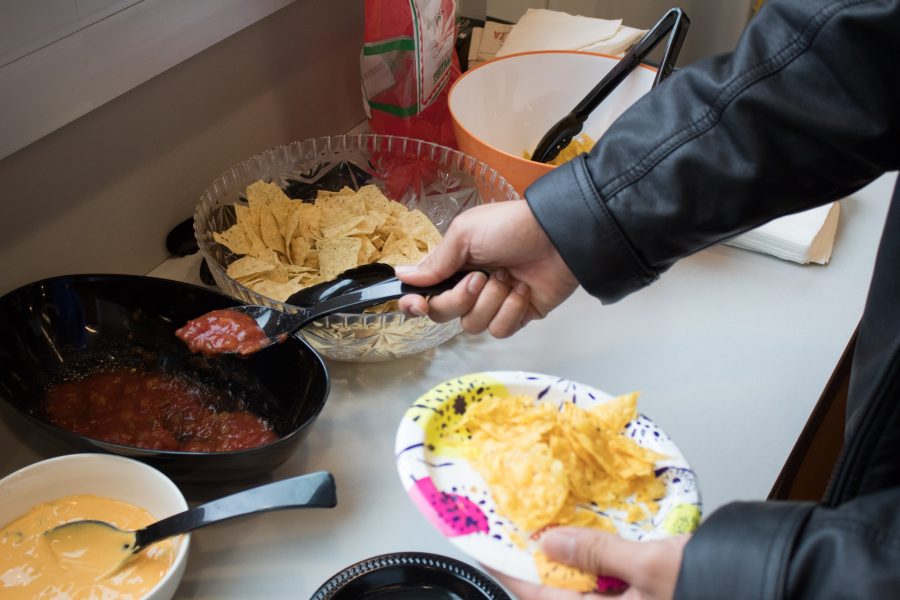Associate professor Zhigou Ye stood in front of a library seminar room so full, additional chairs had to be brought in. She smiled contentedly, turned to glance at her projector screen, and started to talk about a subject she cares deeply about.
The fourth and final News and Nachos event, put on by Seattle Pacific University’s history department, was held on Thursday, May 16. It discussed the topic of the US-China Trade War, and many students, staff and professors came to eat nachos and hear what Ye had to say.
“We counted about 30+ students attending the talk during this busy time of the spring quarter,” said Ye. “I felt very encouraging and exciting see the library’s seminar room full of students eager to know about the ‘trade war’ with China.”
The U.S.-China Trade War, which officially began in 2018 under President Donald Trump, is a conflict surrounding the trading practices of both countries, resulting in investigations and tariffs imposed on one another. While the official trade war is fairly recent, Ye is quick to point out that the complicated trading relationship between the U.S. and China has a long and storied history.

The seminar consisted of Ye presenting her lesson and then a period of questions from the audience, as is the tradition of News and Nachos events. Ye’s presentation, which showed relevant photos, graphs and political cartoons to guide her as she spoke, used both her knowledge of history and of current events to paint a full picture of the issue.
“I see my role is to clarify some popular views on the trade war and put our understanding of the trade conflict in historical perspective,” Ye said.
Students had many questions, pushing the borders of the time constraints on the event, and Ye expected as much — she said this is a subject that is complex and controversial.
“The topic is certainly one of the hottest and debatable issues currently facing the world… 2019 marks the 40th anniversary of the normalization of relations between the People’s Republic of China and the United States,” said Ye.
One student, the first to speak during the designated time for questions, asked Ye how those in the room might see the impact of the Trade War in tangible ways in their lives.
“I think, yeah, every day we see it in the stock market. That’s a very instant response to that,” explained Ye. She went on to explain the other, more intricate ramifications of the trade war on our country, from economics to politics.
“My hope is that eventually [the trade negotiation] will create more opportunities, job opportunities for Americans in the future. That will be good, for you guys,” she said.
She continued to field questions, including one by a student dressed in military uniform asking about the impact of the trade war on the tensions in the South China Sea, and another about how this conflict has affected other countries outside of the U.S. and China.
She explained that Chinese media is different than ours, and it is important to remember that governments all communicate with their populations in different ways.
“I tried to put Chinese articles up here about this, but I could not, because there isn’t access to them,” Ye said. She explained that the Chinese government tends to reveal significantly less to its people about their decisions and negotiations.
Throughout, she was clear that the tensions are caused by a myriad of different aspects from both countries, from social differences to economic tensions to political differences. Ye’s extensive knowledge on the topic showed through prominently with each question.
“[I] discussed how the U.S. and China started their trade relationship in the first place, and how the rise of China’s authoritarian capitalism is a surprising outcome of the U.S. policy developed from Nixon’s visit to Clinton’s administration,” Ye said after.
“The talk [was] really trying to encourage students to think for themselves and help them to understand the increasingly complicated global world. I think we achieve that goal when students brought out thoughtful comments and questions during the Q&A.”

















































































